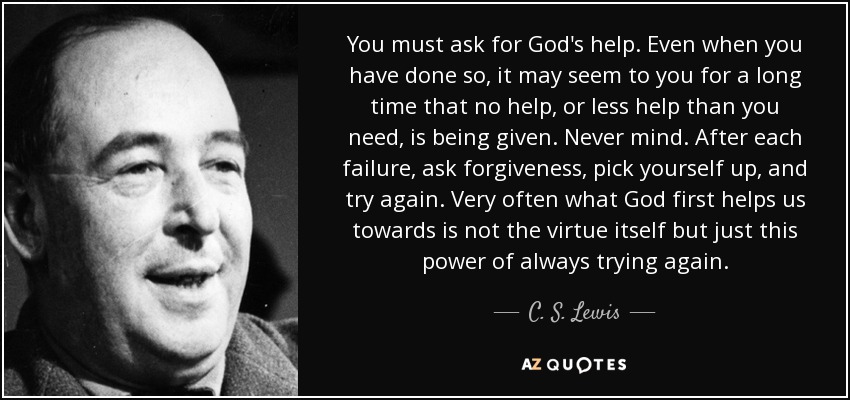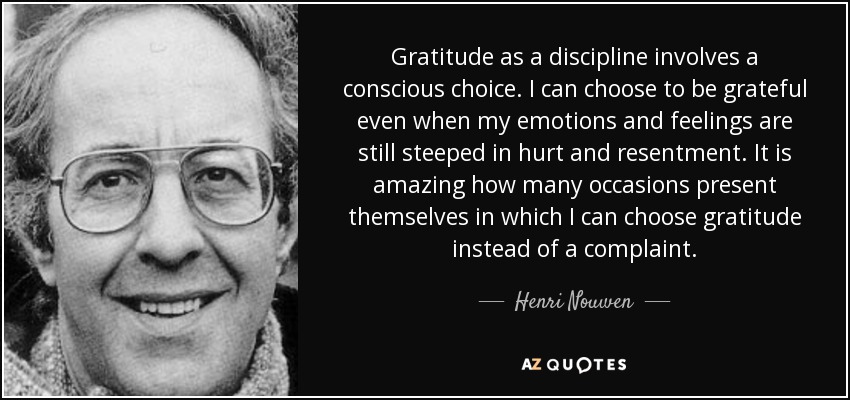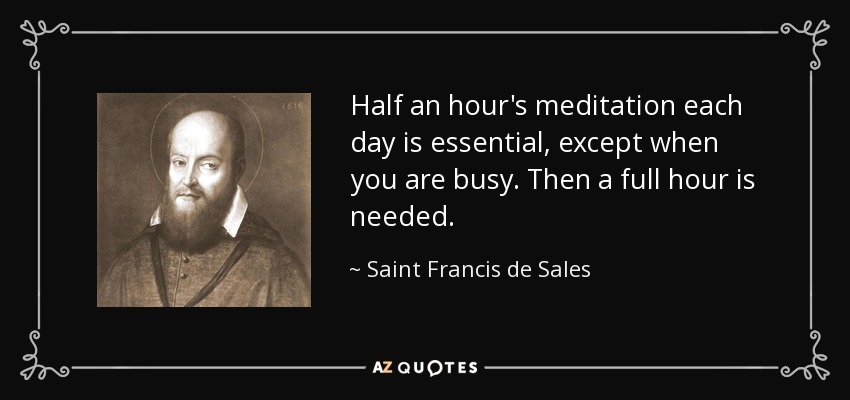Click here to return to Blog Post Intro

Less Fret, More Faith
Anxiety is a meteor shower of what-ifs.
Anxiety and fear are cousins but not twins.
- Fear sees a threat and results in fight or flight.
- Anxiety imagines a threat and creates doom and gloom.
A native Hawaiian once told Lucado the origin of the name that islanders use for non-Hawaiians—haole. Haole is a Hawaiian word for “no breath.” The name became associated with the European immigrants of the 1820s. While there are varying explanations for this term, the Hawaiian explained, “Our forefathers thought the settlers were always in a hurry to build plantations, harbors, and ranches. To the native Hawaiians they seemed short of breath.”
According to the National Institute of Mental Health, anxiety disorders are reaching epidemic proportions. In a given year nearly fifty million Americans will feel the effects of a panic attack, phobias, or other anxiety disorders. In fact, anxiety disorders in the United States are the “number one mental health problem among women and are second only to alcohol and drug abuse among men.” The United States is now the most anxious nation in the world.
People of each generation in the twentieth century “were three times more likely to experience depression” than people of the preceding generation. As psychologist Robert Leahy points out, “The average child today exhibits the same level of anxiety as the average psychiatric patient in the 1950s.”
 It’s the life of perpetual anxiety that Paul wanted to address. The Lucado Revised Translation reads, “Don’t let anything in life leave you perpetually breathless and in angst.” The presence of anxiety is unavoidable, but the prison of anxiety is optional.
It’s the life of perpetual anxiety that Paul wanted to address. The Lucado Revised Translation reads, “Don’t let anything in life leave you perpetually breathless and in angst.” The presence of anxiety is unavoidable, but the prison of anxiety is optional.
From Philippians 4, five verses provide four admonitions that lead to one wonderful promise:
- Celebrate God’s goodness. “Rejoice in the Lord always” (v. 4).
- Ask God for help. “Let your requests be made known to God” (v. 6).
- Leave your concerns with him. “With thanksgiving…” (v. 6).
- Meditate on good things. “Think about the things that are good and worthy of praise” (v. 8 NCV).
The Promise: “the peace of God, which surpasses all understanding, will guard your hearts and minds” (v. 7).
Interestingly, the Bible is Kindle’s most highlighted book, and Philippians 4:6–7 is the most highlighted passage.
Celebrate. Ask. Leave. Meditate. (C.A.L.M.) will serve as our outline below.
CELEBRATE GOD’S GOODNESS
Rejoice in the Lord’s Sovereignty
Our tempests consist of the big Ds of life: difficulties, divorce, disease, and death.
Paul’s prescription for anxiety begins with a call to rejoice. This verse is a call, not to a feeling, but to a decision and a deeply rooted confidence that God exists, that he is in control, and that he is good.
In the treatment of anxiety, a proper understanding of sovereignty is huge. Anxiety is often the consequence of perceived chaos. If we sense we are victims of unseen, turbulent, random forces, we are troubled.
The formula is simple: Perceived control creates calm. Lack of control gives birth to fear. Anxiety increases as perceived control diminishes. That’s why the most stressed-out people are control freaks. They fail at the quest they most pursue. The more they try to control the world, the more they realize they cannot. Life becomes a cycle of anxiety, failure; anxiety, failure; anxiety, failure. We can’t take control, because control is not ours to take.
Your anxiety decreases as your understanding of your Father increases. The next time you fear the future, rejoice in the Lord’s sovereignty. Rejoice in what he has accomplished. Rejoice that he is able to do what you cannot do. Fill your mind with thoughts of God.
Others see the problems of the world and wring their hands. We see the problems of the world and bend our knees. The mind cannot at the same time be full of God and full of fear.
Rejoice in the Lord’s Mercy
Guilt frenzies the soul. Grace calms it.
Behind the frantic expressions on the faces of humanity is unresolved regret. In a psalm David probably wrote after his affair with Bathsheba, he said, “When I refused to confess my sin, my body wasted away, and I groaned all day long. Day and night your hand of discipline was heavy on me. My strength evaporated like water in the summer heat” (Psalm 32:3–4 NLT).
Guilt sucks the life out of our souls. Grace restores it.
A happy saint is one who is at the same time aware of the severity of sin and the immensity of grace. Sin is not diminished, nor is God’s ability to forgive it.
There is a reason the windshield is bigger than the rearview mirror. Your future matters more than your past. God’s grace is greater than your sin.
ASK GOD FOR HELP
Let your requests be made known to God.
Contagious Calm
Paul urges, “Let your gentleness be evident to all. The Lord is near. Do not be anxious about anything” (Phil. 4:5–6 NIV). The Greek word translated here as gentleness (epieikes) describes a temperament that is seasoned and mature. It envisions an attitude that is fitting to the occasion, levelheaded and tempered. The gentle reaction is one of steadiness, evenhandedness, fairness.
The contagiously calm person is the one who reminds others, “God is in control.” This is the executive who tells the company, “Let’s all do our part; we’ll be okay.”
In his fine book The Dance of Hope, Bill Frey remembers the day he tried to pull a stump out of the Georgia dirt. He was eleven years old at the time. Frey explains:
One day I found a large stump in an open field near the house and tried to unearth it. I literally pushed and pulled and crowbarred for hours, but the root system was so deep and large I simply couldn’t pull it out of the ground. I was still struggling when my father came home from his office, spotted me working and came over to watch. “I think I see your problem,” he said. “What’s that?” I asked. “You’re not using all your strength,” he replied. I exploded and told him how hard I had worked and for how long. “No,” he said, “you’re not using all your strength.” When I cooled down, I asked him what he meant, and he said, “You haven’t asked me to help you yet.”
This much is sure: contagious calm will happen to the degree that we turn to God.
Prayer, Not Despair
Peace happens when people pray.
“Let your requests be made known to God.” Here are the characteristics of a specific prayer:
- It’s a serious, sincere prayer.
- It’s an opportunity for us to see God at work.
- It creates a lighter load. Many of our anxieties are threatening because they are ill defined and vague. If we can distill the challenge into a phrase, we bring it down to size. As you sense anxiety welling up inside you, cast it in the direction of Christ. Do so specifically and immediately.
LEAVE YOUR CONCERNS WITH HIM
With thanksgiving . . .
Great Gratitude
Christ-based contentment turns us into strong people.
The good life begins, not when circumstances change, but when our attitude toward them does. Look again at Paul’s antidote for anxiety. “Be anxious for nothing, but in everything by prayer and supplication, with thanksgiving, let your requests be made known to God; and the peace of God, which surpasses all understanding, will guard your hearts and minds through Christ Jesus” (Phil. 4:6–7). Paul embedded in the verses two essential words that deserve special attention: with thanksgiving.
Grateful people tend to be more empathetic and forgiving of others. People who keep a gratitude journal are more likely to have a positive outlook on life. God’s anxiety therapy includes a large, delightful dollop of gratitude.
Focus more on what you do have and less on what you don’t. The apostle Paul modeled this outlook when he said, “I have learned to be content whatever the circumstances.”
- Paul’s use of the term secret is curious. He doesn’t say, “I have learned the principle.” Or “I have learned the concept.” Instead, “I have learned the secret of being content.”
- What you have in Christ is greater than anything you don’t have in life.
God’s Peace, Your Peace
You may be facing the perfect storm, but Jesus offers the perfect peace.
God takes responsibility for the hearts and minds of those who believe in him. As we celebrate him and pray to him, he constructs a fortress around our hearts and minds, protecting us from the attacks of the devil.
Lead with worship. Go first to your Father in prayer and praise. Confess to him your fears. Gather with his people. Set your face toward God. Fast. Cry out for help. Admit your weakness. Then, once God moves, you move too. Expect to see the God of ages fight for you. He is near, as near as your next breath.
MEDITATE ON GOOD THINGS
Think about things that are worthy of praise.
Think About What You Think About
Your problem is not your problem but the way you see it.
You can pick what you ponder. For that reason the wise man urges, “Be careful what you think, because your thoughts run your life” (Prov. 4:23 NCV). Do you want to be happy tomorrow? Then sow seeds of happiness today. Count blessings. Memorize Bible verses. Pray. Sing hymns. Spend time with encouraging people.
Do you want to guarantee tomorrow’s misery? Then wallow in a mental mud pit of self-pity or guilt or anxiety today. Assume the worst. Beat yourself up. Rehearse your regrets. Complain to complainers. Thoughts have consequences.
“Fix your thoughts on what is true, and honorable, and right, and pure, and lovely, and admirable. Think about things that are excellent and worthy of praise” (Phil. 4:8 NLT). The transliteration of the Greek word, here rendered as fix, is logizomai. Do you see the root of an English word in the Greek one? Yes, logic. Paul’s point is simple: anxiety is best faced with clearheaded, logical thinking.
Guard your thoughts and trust your Father.
Cling to Christ
We bear fruit by focusing on God.
You long for the fruit of the Spirit. But how do you bear this fruit? Try harder? No, hang tighter. Our assignment is not fruitfulness but faithfulness. The secret to fruit bearing and anxiety-free living is less about doing and more about abiding.
Lest we miss this point, Jesus employs the word abide(s) ten times in John 15:4–10 (NASB).
We banter about pledges to “change the world,” “make a difference for Christ,” “lead people to the Lord.” Yet these are by-products of the Christ-focused life. Our goal is not to bear fruit. Our goal is to stay attached.
How do we disarm anxiety? Stockpile our minds with God thoughts. Draw the logical implication: if birds and flowers fall under the category of God’s care, won’t he care for us as well? Saturate your heart with the goodness of God.
C.A.L.M.
Choose the tranquili-tree over the anxie-tree.
Christians battle anxiety. Jesus battled anxiety, for heaven’s sake! In the Garden of Gethsemane he prayed three times that he wouldn’t have to drink of the cup (Matt. 26:36–44). His heart pumped with such ferocity that capillaries broke and rivulets of crimson streaked down his face (Luke 22:44). He was anxious. But he didn’t stay anxious. He entrusted his fears to his heavenly Father and completed his earthly mission with faith. He will help us do likewise. There is a pathway out of the valley of fret.
Begin with God.
Celebrate God’s goodness. “Rejoice in the Lord always. Again I will say, rejoice!” (Phil. 4:4). Turn your attention away from the problem, and for a few minutes celebrate God.
Ask God for help. “Let your requests be made known to God” (Phil. 4:6). Fear triggers either despair or prayer. Choose wisely.
Leave your concerns with God. Let him take charge. Let God do what he is so willing to do: “Guard your hearts and minds through Christ Jesus” (Phil. 4:7). Replace anxious thoughts with grateful ones. The Bible’s most common word for worry is the Greek term merimnate. The origin is merimnaō. This is a compound of a verb and a noun. The verb is divide. The noun is mind. To be anxious, then, is to divide the mind. Worry takes a meat cleaver to our thoughts, energy, and focus. Anxiety chops up our attention. It sends our awareness in a dozen directions.
Meditate on good things. “Finally, brethren, whatever things are true, whatever things are noble, whatever things are just, whatever things are pure, whatever things are lovely, whatever things are of good report, if there is any virtue and if there is anything praiseworthy—meditate on these things” (Phil. 4:8). Don’t let anxious, negative thoughts take over your mind. You cannot control the circumstances, but you can always control what you think of them.
Life gives lemons to good people, bad people, old people, all people. Life comes with lemons. But we don’t have to suck on them.
Can you imagine a life in which you are anxious for nothing? God can. And, with his help, you will experience it.




